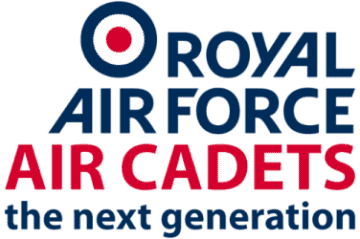“If I were to do it again, I would just eat chocolate wraps!”
What could you do in sixty days? You could learn how to play a guitar, get in shape, quit smoking or train a puppy. Or you could row 3200 miles across an unpredictable Atlantic Ocean in a boat made for four! RAF High Wycombe based Gunner, Cpl Gary Binns opted for the latter and he sits opposite me now to recant the whole experience. When I interviewed him prior to the event he was a lot heavier, but with the dramatic weight loss (14.6 kg) he is more slimline and of course, has the obligatory beard!

On 3 January 2024 Gary Binns, Phil Angus, Justin Wallace & Dan Martin – the ‘Atlantic Rocks’ team - set out in the ‘Sentinel,’ a purpose-built eight metre long, two-foot-wide boat complete with state-of-the-art satnav and its own water maker. The mission? To cross from the Marina Rubicon in Lanzarote, Canary Islands to The Jolly Harbour, Antigua. To put it in context on how tough this challenge is, more people have climbed Everest than have rowed across an ocean, temperatures can reach up to forty degrees and you can burn up to 4500 calories a day. If that isn’t amazing enough, teams can row in excess of 1.5,000,000 oar strokes during the crossing.
The crossing was Gary’s brainchild, and he was instrumental in pulling the crew together, securing funding and generating publicity.
A rowing schedule was set from the outset to discipline the crew. “We changed pattern a few times, with two hours on, two hours off during the heat of the day and two times three hour shifts during the night,” said Gary. But boredom with each other during the endless hours of monotonous rowing was never allowed to happen: “We made a conscious effort to socialise. We never rowed with just one person. During a two hour shift we rowed with two people – one for an hour and a half and one for half an hour. It worked! It also helped us mentally. We had quiz nights whilst rowing, and at times we had the phones on watching Band of Brothers. Time seemed to go really fast.” In turn the crew seldom argued or fell out. The rule was if there were any gripes you had to speak up and not let things fester.
“We did not really do much training, only the qualifications required. How do you train for 3000 miles?”
For non-seasoned rowers, the dreaded sea sickness can befall many. Gary was no exception. He consumed sea sickness pills for the first thirty days to counteract the continual bobbing momentum. “The body got used to being at sea. On the oars each day you started not to notice the movement so much,” said the Gunner.

The four were warned about the waves, with rowers having to battle many reaching sixty feet high. The team did video many of the waves, but nothing could replicate being there. The unforgiving waves often flipped the boat on its side where faces skimmed the ocean, known as ‘knockdown.’ Luckily, the boat never capsized but should that have happened the rowers were protected by foot straps and safety harnesses. “Waves in the dark were hard,” said Gary, shaking his head at the memory. “I got through it by just laughing. Once we had a thunderstorm for four hours solid with lightning and thunder. You just had to row.”
Water may be the liquid of life, but it can also work against you, as the team discovered. Four days into the voyage repairs to the boat meant that a new compartment had to be made for the life raft. Water crept in, causing pressure to build and it seeped into two of the ration compartments, one of them being Gary’s. A third of his rations were lost, including all his snacks. As each man needed his rations it was virtually impossible to share.
Whilst battling mother nature the Gunners also had more man-made difficulties. The electrics powering the Sentinel were intermittent meaning there was not the luxury of having power 24/7. Electrics were charged during the day courtesy of the solar panels and power was only used at night. Navigation in daylight hours was down to the trusty compass. During the night, much foot steering took place resulting in knee damage for many of the crew. Within two and a half weeks of setting sail the internet connection was irreparably broken. “It was more beneficial,” said Gary, optimistically. “If we had had the internet, we would probably have always been on it.” The sat phone allowed the crew to speak to loved ones daily.
“During low pressure times rowing through thick, stagnant water was like pushing through treacle.”
If you thought the food was going to be tasteless freeze-dried lumps of unidentified meat, you would be wrong! Rations were set at four meals a day per man (equalling 4500-5000 calories a day) and was split very much fifty-fifty between freeze dried and wet food. More wet food (such as sausage and beans) was consumed. “Just like military rations – it lasts for ages,” said the Cpl. With no oven on board the team relied on a jet motor to heat water for essentials like tea and coffee. The luxury item travelling with them is something we can all relate to: “We all bought Nestle chocolate – a godsend! The wraps last for four months and we had two each night. It gave a real energy boost.” Altogether the crew had fifty-five days of rations and though the voyage lasted for sixty-one, the crew always knew they would run out. But the bulldog spirit shone through as the crew were determined to make it last until they reached Antigua.
Many may have become dejected due to the monotony of day-to-day living on the sea, but for the team it helped being in the military. “We had all been on manoeuvres, like in Afghanistan where you are given a timetable, you come to work, and you just do it. We did not feel sleep deprived because the rowing pattern helped,” commented the seasoned Cpl.
When not rowing or sleeping each man had specific administrative tasks. Some cooked, some cleaned or checked navigation each day. On rotation each crew member had to make eight litres of drinking water each day per man using the onboard water maker.
The ocean may be fraught with many hazards, but it also houses many wonders of the world, including some amazing sea life. Humpback whales, pods of dolphins (up to fifty-sixty once surrounded the boat), blue whales, sea turtles the odd tiger shark and a marlin all greeted the rowers during the journey.

With such a huge task in front of them and with the numerous setbacks the inevitable question had to be asked: Did they ever feel like giving in? “We all spoke about it. Every time we saw a ship sailing by, we would say let’s get on it. It became a bit of a joke,” said the Cpl in good humour.
When the electrics malfunctioned, they did have a team discussion where the pros and cons were weighed up. Voting was always done democratically and each time they voted to go on – such was the tenacity and the resilience of these four men.
So, what would you miss after being at sea for sixty-one days? Fast food, dry land, your iPhone? For Gary, the answer was far simpler, and something that we all take for granted. “Walking! You can’t walk more than a metre! Some of the guys missed a porcelain toilet, going to buy something and of course, we all missed family,” said the stoic Gunner.
“I am forty this year and have never been able to grow a beard. No one shaved. There was no point.”

Reaching The Jolly Harbour in Antigua after a feat of endurance few will experience in their lifetime was understandably overwhelming. They had been battered, bruised, felt the roar of the ocean and the warmth of tranquillity. “It was overwhelming, very emotional. All the families had arrived two days earlier. I knew I would be emotional seeing my son again. I was even more emotional for the fact of actually achieving the goal,” said a clearly tearful Gary. The local people also welcomed the gallant Gunners carnival style with steel bands and a ticker-tape parade – a memory never to be forgotten.

“When we arrived, we all just wanted a can of Coca-Cola!”
With the benefit of hindsight, would the team have done anything differently? “Everything,” said the plucky Cpl, cheekily. “From the training onwards. We would have had different food, no dry rations. The boat may have been heavier, but there was no time limit.”
Of the three teams who took up the challenge, the 4-man ‘Brightsides’ reached Antigua first in fifty-one days, ten days ahead of Atlantic Rocks. The third team, ‘Destiny’s Tide’ with just two crew aboard had to pull out of the race due to electrical issues within the first two weeks of the event. So far, the RAF crew have raised over £22,000 for five worthy charities including The Centurion Fund, Tough Enough to Care, Mental Health Research UK, SSAFA & The Veterans Charity.
To anyone crazy enough to want to emulate our guys’ achievement Gary has some wise words; “Get as much advice as possible. Talk to those who have done it. We were lucky. We had the mental robustness already with us being in the military.”

It is testament to the crew that although they have completed one of the toughest races on earth, they are not content to sit on their laurels. Already Gary is eyeing up the possibility of doing the ‘Seven Ireland Summits’ – scaling some of the highest points in Ireland. Will they do it? Without a doubt.
Congratulations to the Atlantic heroes who really do rock!








